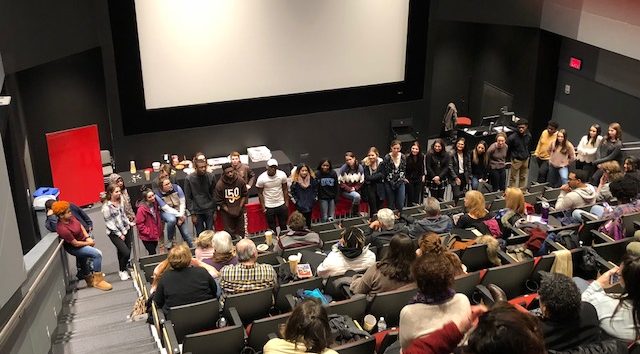I major in Environmental Science with minors in Political Science and Sustainability. Most things that I do are through the lens of these subjects. That includes just the general way I take in the world around me. For example, when I look out my dining room window right now, I notice the beautiful vines that are growing on the outside of the house. I also notice that they are creeping their way in between bricks and windowpanes, meaning in the winter that house will need more propane to stay warm. When I do things there is always a cost benefit analysis going on in my mind of how environmentally conscious I could or could not be. This applies to small things like taking out the trash, taking a long shower, eating meat; it’s also present in my larger life decisions like what job to apply for. Will I contribute more to a sustainable human-planet relationship by doing laboratory science, working for non-profits, or reaching out to the larger populous through film and story telling? I’m taking this class as a way to challenge myself and my presumed role in combatting and adapting to climate change. If I could tell the story of a specific place in the Lehigh Valley, it would be the Lehigh Gap Nature Center. Its history as a Zinc factory, Superfund site and now reclaimed natural area is fascinating. The visuals of that place are also stunning and communicate the complex reclamation process of a toxic waste site into a nature reserve. The problems that the Nature Center encounters are also fascinating to me, like how the trees they planted on the landfill are great for reducing erosion and keeping the toxic waste under the soil, but also create an outlet for toxics as leaves absorb underground zinc deposits and are blown into the nearby river, spreading toxic contamination to surrounding areas.
Author Archives: Devin Domeyer
Framing
Framing the world made me see potential in the ordinary happenings inside the frame. I would focus in more clearly on what was within the cardboard border and in doing so I saw beauty in things I would have otherwise overlooked. Like the specific sway of a tree, or the organization of students sitting on the Muhlenberg front lawn. I felt some of the same self-consciousness I feel when I carry around a video camera, except this was more acute and definitely stranger. I framed patches of dirt and saw beetles and crickets in the grass, I framed my friend’s face and saw their expression change to one of being watched, I framed my living room and noticed that my painting was not centered over my couch. As the minutes went on I started looking for more interesting snapshots of the world: ones more aesthetically pleasing, more active, more engaging, etc. It was a dynamic exercise that showed me my campus through a different analytical frame.
